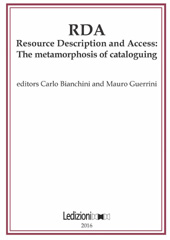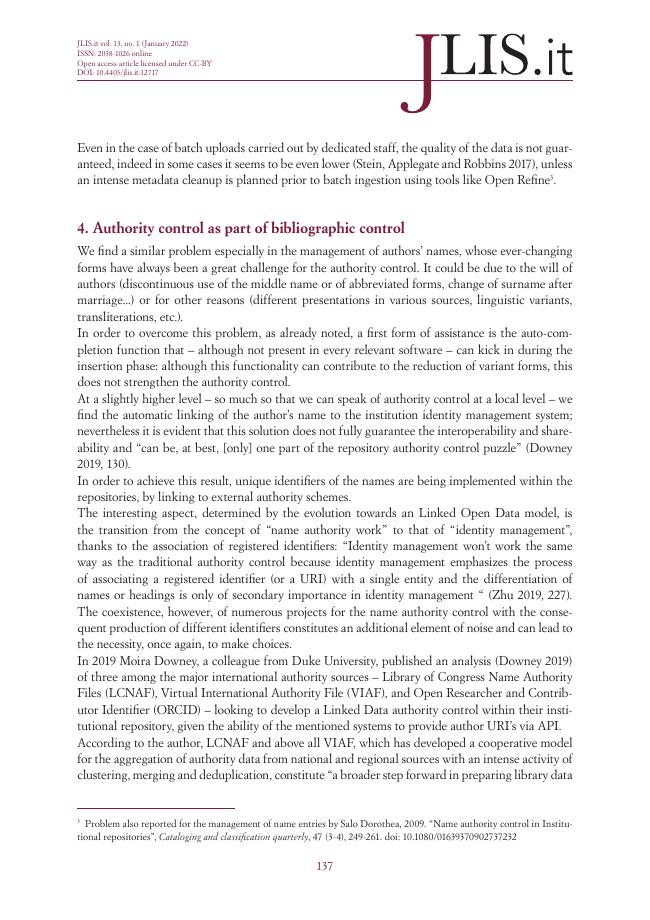Bibliographic control and institutional repositories : welcome to the jungle
132-142 p.
In 1994 cognitive scientist Stevan Harnad made what he defined a "subversive proposal" to his colleagues: «immediately start serf-archiving their papers on the Internet». Since then, institutional repositories have been chaotically developing, alongside disciplinary repositories. In the early XXI Century the public debate was centered on their purposes and therefore on what they were supposed to contain; librarians joined the discussion and contributed to it by implementing descriptive standards such as Dublin Core and interoperability protocols (OAI-PMH). The themes under discussion were closely related to bibliographic and authority control, given that the quality of metadata has a profound impact on the quality of the services offered to users. Presently, we are still trying to answer some of those old questions: what (or whom) are IRs for?.
Is bibliographic control so necessary within an environment that has never failed in self-archiving? Can we consider IRs a bibliographic tool? We also need to deal with a wider vision: in a scenario that saw the transition from OPACs (created, managed and controlled by librarians) to current discovery tools (with their information redundancy and the related problems on data correctness and quality control) can librarians still be authoritative and act effectively? [Publisher's text].
-
Articles from the same issue (available individually)
-
Information
ISSN: 2038-1026
DISCIPLINES
KEYWORDS
- Authority control, Institutional repository, Bibliographic control



